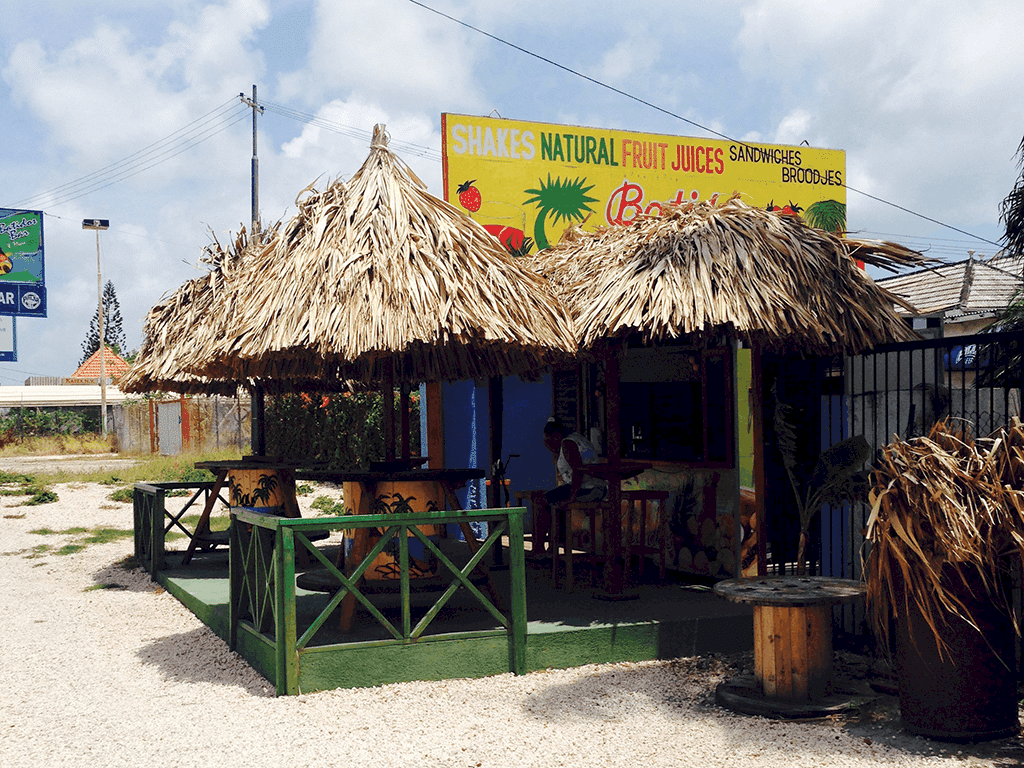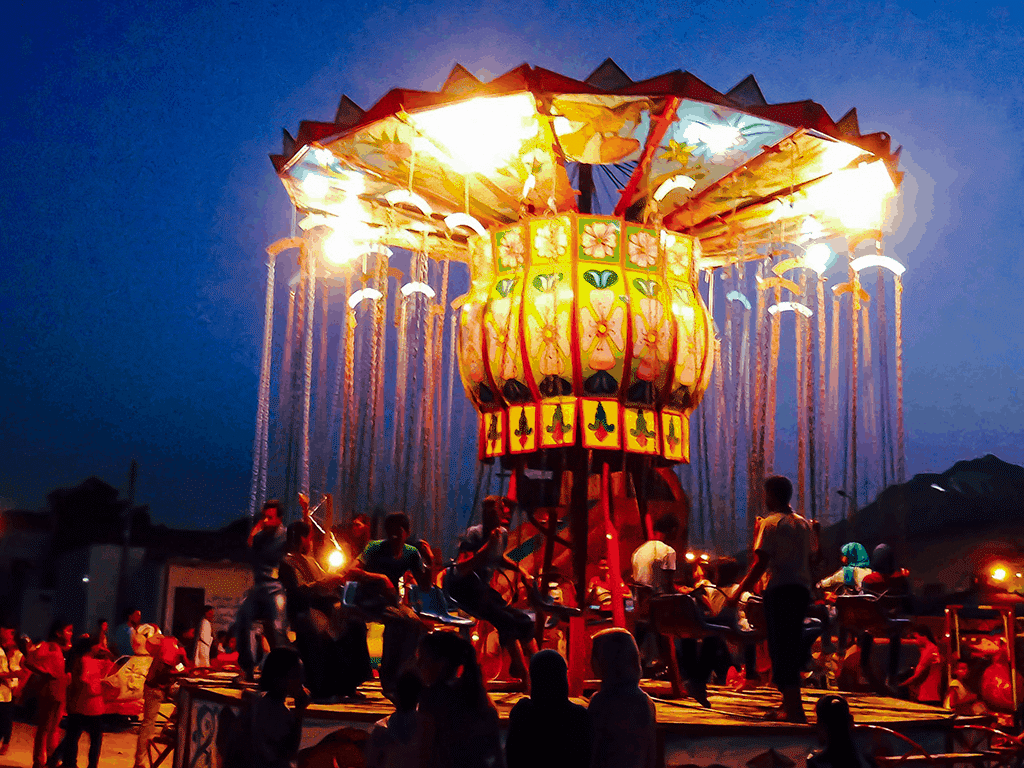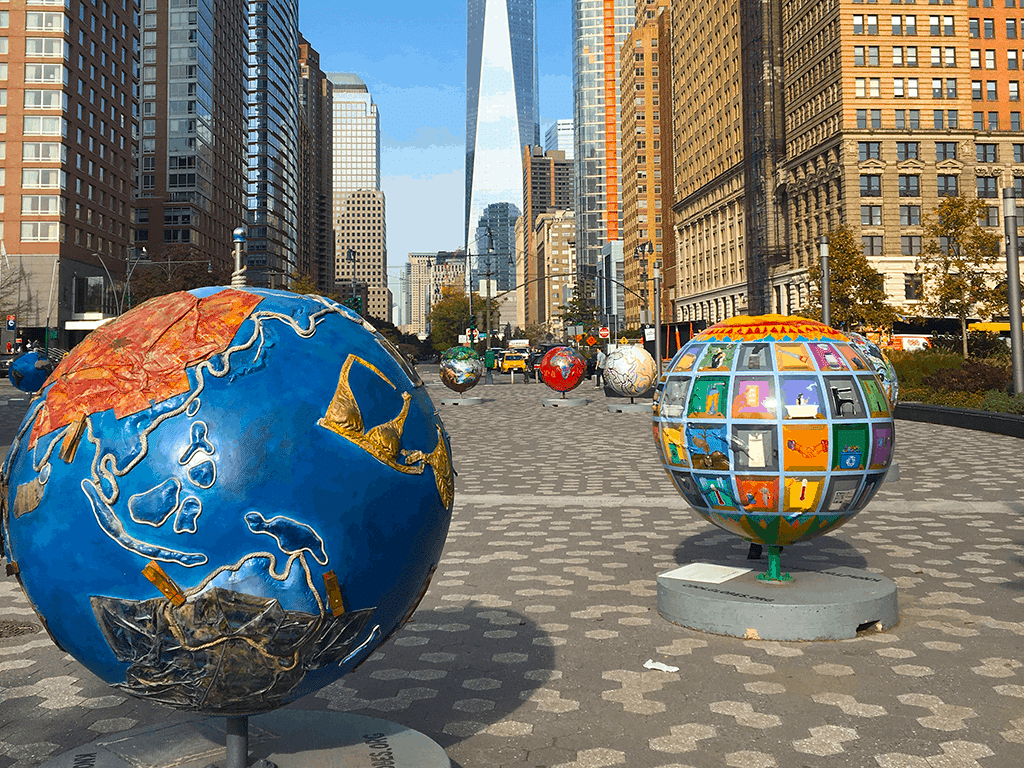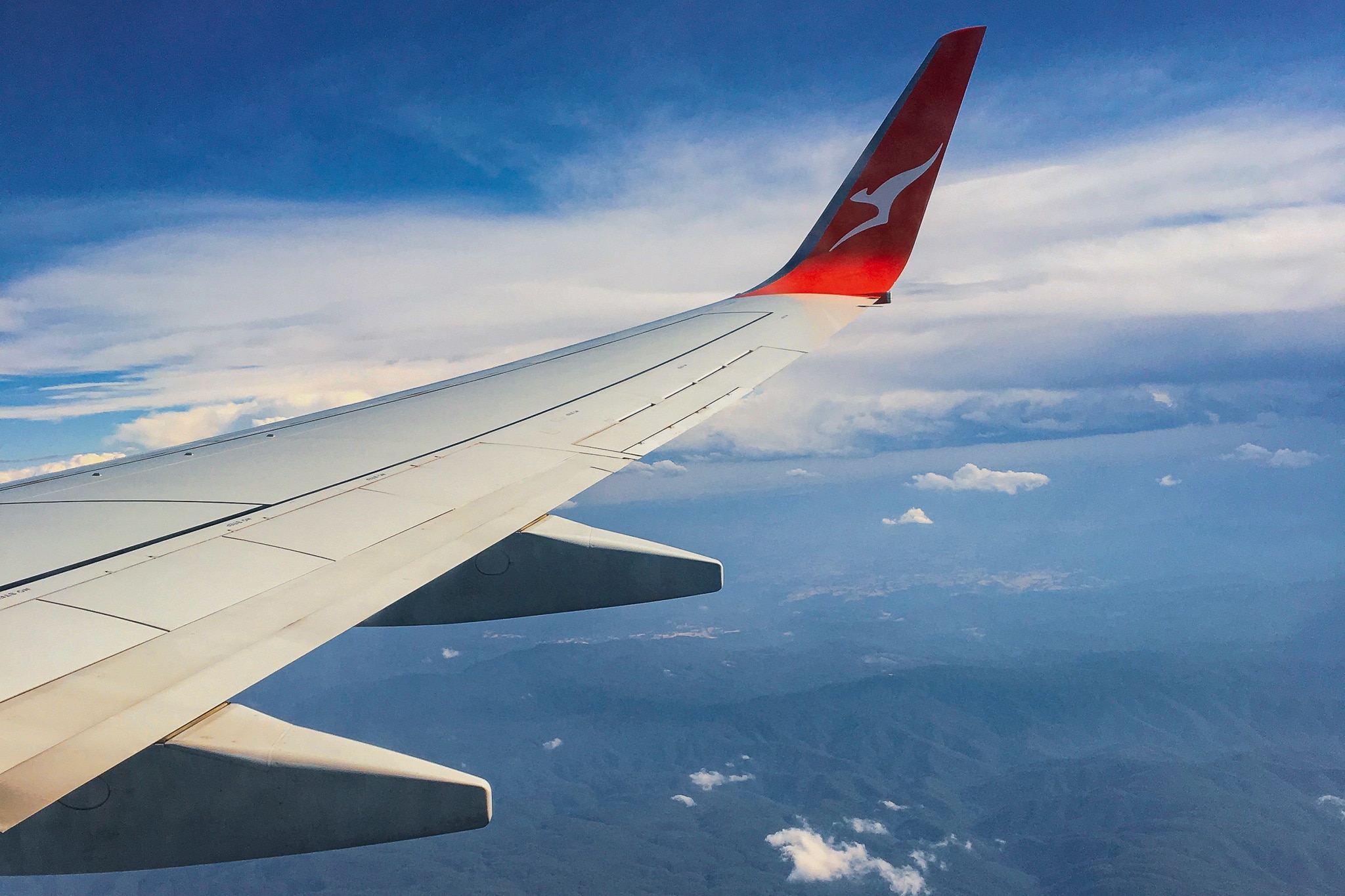
I remember the first sailing trip I ever went on. I’d packed a pile of bikinis to impress the super hot captain who’d invited me along, and I thought I was prepared for a week in the Bahamas: I had sunscreen, sunglasses, and a variety of Instagrammable outfits.
It would be like a music video where I’d get a great tan and relax as the ocean waves sprayed me refreshingly.
The minute I arrived, it became apparent that my music video fantasy version of ocean living was not to be. For starters, sailing is hard work. Cruising a small boat in shallow water means scanning anxiously for rocks, getting thrown about by waves, and dodging the boom.
I arrived home sunburnt, salty, and a little banged up. Don’t get me wrong… parts of the trip were very sexy. But it wasn’t the vacation I thought I was going to have.
Remembering this made me realize how much I idealized traveling before I started doing it, and I recalled how surprised I was to learn what traveling is really like. I thought I’d save you some time and effort and give you the low-down on the truth about traveling. Here are ten things I wish I’d known when I started traveling the world:
1 Things are not going to go as planned. I know this thought makes the overachieving, detail-oriented types anxious, but it’s true. Your flight will be late, or your tour guide will. (I have learned that “yes, yes, around noon” means very different things in different places.) Maybe your partner will be sick and unable to join you on your scuba adventure, or the restaurant you were dying to try will be closed because a water pipe broke.
Things are going to go wrong. Fortunately, there’s a simple trick to managing this inevitability: you plan for things to go wrong. Make a list of your three restaurants you’re excited about instead of giving one spot Holy Grail status. Treat an afternoon without your love as an adventure. Expect the curveball, so when it arrives, you can think “Oh, there it is”… and catch it.
2 You will learn all of the unflattering and untrue things people believe about your culture. Traveling through Asia immediately after Trump became elected was such an eye-opening experience, because people were eager to share their theories about what was wrong with America. We were obsessed with money, I was told. We did not care about children or the elderly or the arts, and we did not hold our politicians accountable like their political system did.
I heard from so many “experts” on my own culture on the opposite side of the world! Sometimes people’s commentary was fascinating and made me think about America in a new way, and sometimes someone’s outright contempt for Americans felt hurtful. When I got too tired of rehashing American politics for sport, I told people I was Canadian (it’s true, I’m dual), and they just laughed and said “Eh?”.
You’ll also discover what wild stereotypes are told about you. In Marrakech, I met several men who explained to me that single Western woman traveling alone were viewed as adventurous but also promiscuous. And in a small town in Myanmar, my hotel host commented on my weight and asked how I would find a husband. (I had this conversation endlessly in Asia.) When I said I was single, he said “It’s ok you find someone. In America they don’t care, all Americans fat, fat, fat!”
3 You’ll share things with strangers you’d think twice about telling your best friends. There’s a reason confessing your sins to a stranger is a practice in religions worldwide: your relationship with your friends and family have a past, present and future, and sometimes it’s hard to be completely honest because you value that relationship, and want it to continue. When you’re traveling, you can find intense connections with people, but sometimes your relationships just have a now.
Once I met a guy on a beach when I was traveling alone. It was his last day in town, and we watched one another’s belongings when one of us wanted to swim. After the sun went down, we ended up sharing a pitcher of beer at a cheap dive bar, and somehow we wound up sitting in a corner sharing secrets until the bartender kicked us out. I said some things out loud to him that I don’t think I’ve told anyone since, because it felt safe and uncomplicated to say things I couldn’t say at home. When the night ended, I gave him a hug and we didn’t exchange contact information. I don’t think either of us wanted to – we both realized the other knew too much!
4 You will make a fool of yourself. It’s going to happen: you will do something that makes the locals howl with laughter. Your face is going to get red and you’ll feel like a dummy, but it won’t ruin your vacation or your life, or probably even your day.
I realize that probably doesn’t sounds fun, but making mistakes is good for you. Believe me: I used to be terrified of them. I didn’t like the idea of traveling because it would put me out of my comfort zone.. I wouldn’t know the language and I would say the wrong thing and the local would laugh at me.
When I was thirty, I had a stroke. (I’m okay, I talked about it on the podcast RISK! if you’d like to listen to it!.) But one thing a stroke is very good for is making you appreciate the power of effort. Nothing is easy, and things that were once simple, like stairs and remembering your middle name? They’re just impossible.
The experience of rehabilitation just knocked that desire to pretend that everything is easy right out of me. Things are hard sometimes, and tough people get through them. We make mistakes sometimes, and if we can learn to laugh at them, we can lead gentler lives.
So maybe you’ll accidentally proposition someone when you meant to ask where you could buy a fruit, or perhaps you’ll find yourself staring down at a bucket of clean water in a foreign bathroom, unsure if you’re supposed to rinse the toilet with it or wash your hands in it. It’s gonna happen: you’re gonna feel ridiculous and out of your element and people might laugh at you. But you’ll live. And if you can learn to laugh about it, it might turn into a great story that you share with other travelers.
5You will get sick. It might not be your fault. You can be careful about water, avoid the street food despite the delicious smells coming from that dodgy little stall, and the minute a little kid sneezes as he walks by it’s game over.
When you get sick, you’re not going to be able to curl up in your own bed when it happens. Thankfully, other travelers are usually very helpful… most of us have been miserably ill on a trip, and we want you to feel better as soon as possible.
And while it may seem scary to think about being sick in a different country, the good news is that illness is universal: every culture has a way they handle headaches and upset tummies. If you can find a pharmacy, you’ll be able to find the cure for what ails you, even if you have to do a series of embarrassing pantomimes to illustrate your problem.
6You will realize how large the world is. Every city and country has new surprises, and you will encounter people living their lives in ways you didn’t think possible. I remember the first conversation I had with a man who had multiple wives, and as he explained the hierarchy and habits of his marriages, I thought: “I really know nothing about the world.”
7You will realize how small the world is, too. You might be in a city eating something you’ve never seen before that you wouldn’t dare try to pronounce, but a mother will walk by scolding her child and it will remind you of the tone your own parents took with you when you misbehaved. I once stumbled upon a local street carnival near The Valley of the Kings in Egypt, and it was exactly like the small Midwestern ones I’d been to when I was young. The snack foods were different, but the teenagers poking one another, the children laughing delightedly? It was the same thing I knew from home, happening thousands of miles away.
8 You’ll get overcharged or scammed. I don’t want you to get scammed, but I don’t know any long-term traveler who hasn’t been taken for a ride at some point or another. Sometimes it’s as predictable as jacked-up tourist pricing for transit (is there only one way to get to your island? You’re probably paying a premium to get there, whether you like it or not).
Sometimes it’s a “bargain” offered by a local that’s twice the price you’d pay elsewhere. Sometimes it’s an elaborate scam involving multiple people, and a complicated, well-rehearsed sob story. Once, a woman in Cuba gave me an elaborate song and dance about how her baby needed powdered milk, and when I walked past her later, I heard her telling a completely different story to another traveler.
I doesn’t feel good to realize you’ve been taken advantage of, and it’s best to do some research so you know the going rate for anything you need to buy. I can’t tell you how many times taxis have quoted me double the normal price for a ride to a city center. Telling them I know the correct price usually results in a sheepish shrug and me paying the correctly-priced fare.
Don’t spend money on anything that seems too good to be true (it is), and don’t let anyone hand you anything, put anything on you, or talk you into going to a second location where they can offer you a better deal. Be wary in particular or groups of people who approach you, since pickpocketing is a team sport.
9 Emotions are going to run high. Like… really high. Traveling is a wonderful, important experience but it’s helpful to remember that it’s also stressful, and people process stress in a variety of ways. Jet lag in particular can throw you for a loop: it makes some people weepy and some people disoriented and some people cranky. Your body might do strange things in new circumstances, and you might feel weight about it. (If you get weird vacation body feelings, read this essay I wrote about Loving A Body You Don’t ALways Like.)
You might also find yourself dealing with stressful budgeting situations, and circumstances that are out of your control. Practically, this can mean that one day you’re holding hands and strolling around romantically with your boo near the Seine and the next day you’re snapping at each other about who ate the last baguette.
If you’re traveling with friends or a partner, try to exercise patience and remember that everyone is dealing with an unusual level of stress and they might act in ways that are a little different than they do at home. If things get touchy, don’t be afraid to take a half day apart. If they’re dying to see the museum and you really want to people watch from a cafe, make plans for dinner and tell one another about your days.
10 Traveling can change your life. When you travel, you learn things about yourself that you could not learn at home. You learn how little you know about the world, and how much there is to know. People treat you differently than they do at home when you travel. They don’t know, so they don’t know who they should expect you to be.
Before I went on my first sailing trip, I didn’t think I was tough enough to crew a boat, and I certainly didn’t think I could spend a week on the ocean without showering! When I asked the captain why he’d taken me along, he shrugged and said “You’re adventurous. I knew you could do it.”
I’d never thought of myself as adventurous before, but that adventure taught me so much about what I liked, and what I was capable of… and that’s the beauty of travel. Traveling asks you to think about your identity in a whole new way and reimagine what’s possible for you.
If you’d asked me ten years ago if I’d be writing a travel blog, I’d have laughed and said “Nah, I’m not really the traveling type.”
I’m so glad other travelers encouraged me to be fearless and get out and see the world. The things I discovered about myself when I stepped outside of my comfort zone changed my entire life. Traveling might change your life too.











